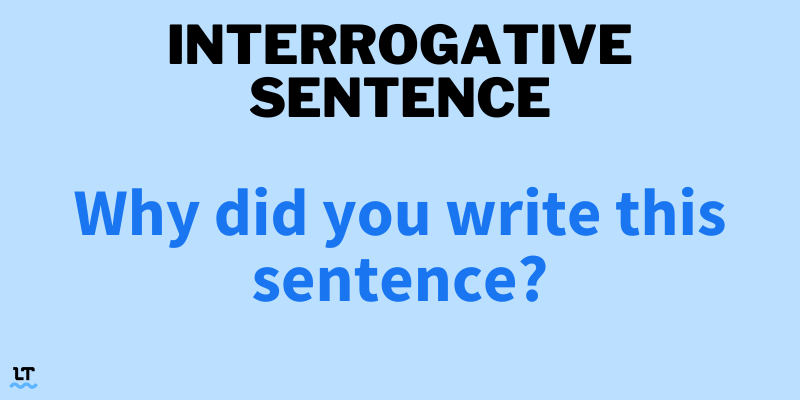Sentence Types: Quick Summary
Grammatically, sentences can be categorized according to their syntactic structure:
Pragmatically, sentences are also classified based on their function:
Why Understanding the Different Types of Sentences is Important
Having a thorough understanding of the different types of sentences is vital for clear communication and effective writing for many reasons.
- Knowing the different types of sentences, what purposes they serve, and when and how to use them facilitates clarity. In simpler terms, it makes your writing easier to understand.
- Using different types of sentences enhances the variety of your writing while adding rhythm and flow, which keep your readers engaged.
- Employing a variety of sentence types in your writing gives you more control as a writer—you get to decide the flow and emphasis.
Think of it this way: If you’ve ever sat through a boring lecture or presentation, chances are the speaker was talking in a monotonous tone and using the same types of sentences over and over again.
On the contrary, if you’ve ever been to a lecture or presentation that kept you engaged and interested, then that speaker most likely used long and short sentences, asked questions, and made exclamations.
So, if you want to compose effective writing and keep your audience engaged, then it’s a good idea to learn about the different types of sentences.
Let’s get started!
The Four Types of Sentences Based on Grammatical Classification
Grammatical classifications of sentences focus on their structure and the arrangement of clauses within them.
Simple Sentence
A simple sentence is made up of one independent clause and no dependent clause.
Remember, an independent clause contains a subject and a predicate and expresses a complete thought. On the other hand, a dependent clause contains a subject and verb but does not express a complete thought and therefore cannot stand alone.
Here are a few examples of simple sentences:
She sings beautifully.
The cat is taking a nap.
He ran to catch the bus.

Compound Sentence
A compound sentence contains two or more independent clauses. A comma and a coordinating conjunction (and, but, or, nor, for, so, yet) or semicolon join the clauses. There are no dependent clauses in a compound sentence.
I enjoy hiking, but my twin sister prefers swimming.
The sun was shining brightly, so we decided to have a family beach day.
My younger brother loves football; he practices every day as much as he can.

Complex Sentence
A complex sentence comprises one independent clause and at least one dependent clause.
If the dependent clause precedes the independent clause, then a comma is needed to connect them. But if the independent clause is first, then the clauses are joined with subordinating conjunctions.
After I finished the project, I went outside for a walk.
Due to her determination and grit, she won first place in the swimming competition.
We didn’t attend the ceremony because we all came down with the flu.

Compound-Complex Sentence
A compound-complex sentence contains two or more independent clauses and at least one dependent clause.
We tried our best, but we still didn’t win first place, and we were disappointed with the result.
Lucy went to the store, and while she was there, she ran into an old friend who she hadn’t seen in years, so they decided to grab a cup of coffee and catch up.
Johan finished his homework early, so we decided to go for a walk, but when it started raining, we had to return home.

Now that we’ve covered the grammatical classifications, let’s review sentences based on their functions.
The Four Types of Sentences Based on Functionality
Based on their function, sentences can be classified into four categories.
Declarative Sentence
A declarative sentence makes a statement or provides information. They usually end with a period.
I live next to the school.
We were deciding whether to attend the event.
My birthday is next Monday.

Interrogative Sentence
An interrogative sentence is used to ask questions and seek information. It often begins with a question pronoun (who, what, where, when, why, how, etc.), and always ends with a question mark.
Why did you leave that there?
Where did you go on vacation?
How are you doing?

Imperative Sentence
Imperative sentences give commands, instructions, or requests. Imperative sentences usually do not have a subject explicitly stated. Instead, the subject is implied.
Please pass me the salt.
Don’t forget to buy some milk on your way home from work.
Close the door!

Exclamatory Sentence
Exclamatory sentences express strong emotions, like excitement or surprise. They are used to express joy, anger, astonishment, or any other intense feeling. Exclamatory sentences typically end with an exclamation mark.
Wow, what a beautiful sunset!
That rollercoaster was scary but so much fun!
What a remarkable performance!

Enhance Your Writing With Flawless Sentences
Now that you understand all the different types of sentences, here’s a tip: Make sure your sentences are free of grammar, spelling, and punctuation errors.
You can use all the right sentences at the right time, but if they contain mistakes, their messages won’t be as strong, and your audience will be put off. Avoid this by using LanguageTool, a multilingual writing assistant that ensures perfection in your writing.
Not only does it check for various types of errors, but it can also rephrase your sentences and more.
What are you waiting for? It’s free to try.

